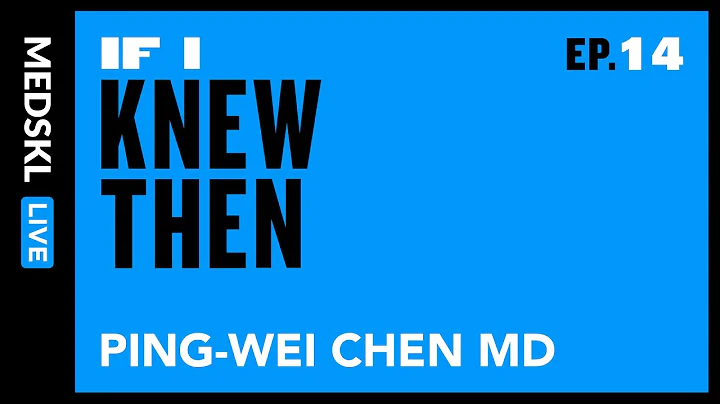
No matter from which angle you look at it, Peng Yongzhen is not one of those who wins at the starting line.
This Academician of the Chinese Academy of Engineering , Professor of Beijing University of Technology , cut wood in the mountains when he was young, and did not enter university until he was 24 years old. After graduating from university, he stayed in school to work as a teacher, feeling that his foundation was worse than others, so he "worked hard" to study for graduate school. He finally got a doctorate and studied in Japan. At that time, China was backward and he was looked down upon. He could only win a moment of respect by talking about the successfully exploded hydrogen bomb and atomic bomb.
However, "starting late" did not affect his growth into an excellent scientist. On the contrary, it encouraged him to forge ahead, hoping that he could become a useful person to the country and society.
Peng Yongzhen was born in 1949, the same age as the Republic. He once said in a self-report: "Our generation went to the mountains and countryside, overcame all obstacles, and walked in the same direction with the Republic. Seeing the motherland's vigorous development and rapid changes, my inner pride and excitement are beyond words. Only by understanding the bumps in the road can we understand the pride and excitement of this 49-year-old party member.
"Three thirty in the morning, invisible at night, and three meals in the fields." Peng Yongzhen spent his life as an educated youth. He could only read for a short time at night, "but not much." The lack of knowledge further aroused his desire. As soon as he entered the university campus in 1973, he studied eagerly. Even though he was approved to stay at the school to teach after graduating from university, he did not relax. He passed the master's degree and studied with students almost every day. to "late night."
's broader vision not only made him realize his personal responsibility in the country and society, but also gave him a deep understanding of the sharp contrast between the rapid progress of the world and the backwardness of China. He said: "At that time, I felt that without scientific and technological development , China will never develop. "
In the early 1980s, Peng Yongzhen and a group of international students embarked on the road to study in Japan. They were greatly shocked by the local prosperity, and they were suffocated by the lack of respect for the backward China. The two were intertwined, inspiring the ideals of every overseas student. Everyone worked hard day and night, hoping to serve the motherland as soon as possible. .
What impressed him deeply was that one Mid-Autumn Festival night when he was studying in Japan, "I felt desolate when I was alone in a foreign land, but when I thought of my responsibilities, I felt full of strength." Peng Yongzhen said.
This kind of power has always inspired and motivated Peng Yongzhen, "making me dare not slack off even for a moment." Because of this, he has had almost no real vacations for many years. Except for business trips, he spends most of his time in the laboratory or office.
Affected by the COVID-19 epidemic in recent years, students have not been able to study, do scientific research and participate in practice at school. However, Peng Yongzhen has always encouraged them to make full use of their time to organize materials and write papers, and has discussed with them many times. Scientific research work has never stopped. In recent years, students have published dozens of excellent papers.
Of course, publishing a paper is not the ultimate goal. Peng Yongzhen hopes to "write the paper on the land of the motherland." This is the starting point and final destination of his scientific research work. His main research directions are sewage biological treatment and its automatic and intelligent control, new processes and technologies for sewage denitrification and phosphorus removal, focusing on urban sewage treatment . "Most of his research results can be tested in practice, until applied”.
Dianchi , Taihu , Bohai all have the problem of oxidation of water bodies caused by excessive nitrogen and phosphorus, as is the case with slow-flowing water bodies in many places. Therefore, Peng Yongzhen believes that “scientific research must put the country’s major needs first”. And this persistence lasted for decades.
Wastewater nitrogen and phosphorus removal was once an unpopular direction. Everyone thought that this field was "relatively traditional" and "it was not easy to publish papers." Some companies had wanted to spend large sums of money to make him change his direction, and some students had even wavered in their determination because it was difficult to publish papers. However, he firmly believed that "there will be new needs for sewage nitrogen and phosphorus removal in another 50 years."
Time has proven that his professional judgment is correct.The "2020 Research Frontiers" jointly released by Clarivate Analytics and Chinese Academy of Sciences shows that "Anaerobic ammonium oxidation technology and its application in wastewater treatment" is the only key hot front in the environmental field, and its core paper output countries and institutions are ranked among , China ranked first, Beijing University of Technology and Delft University of Technology in the Netherlands tied for first place in the world.
In recent years, Peng Yongzhen has led a team to assist Beijing Urban Drainage Group , taking the lead in breaking through the problems of industrialization and large-scale application of anaerobic ammonium oxidizing bacteria , and establishing my country's first independent intellectual property technology system - anaerobic ammonia Oxidation project construction. At the same time, Peng Yongzhen led the team to propose the relevant research results of "short-range denitrification coupled anaerobic ammonium oxidation" for the first time in the world.
As a peer of the Republic of China, Peng Yongzhen’s personal growth resonated with the country’s scientific and technological development. He not only witnessed the country’s journey from standing up to getting rich, and then becoming strong, he also personally participated in China’s gradual progress in the field of sewage treatment from scratch. The process of development.
Faced with a late start in his studies and a late start in scientific research, Peng Yongzhen worked hard and ingeniously, never daring to slack off and never giving up.
’s idea that supports him along the way is actually very simple - "In technological competition, time waits for no one. We cannot let 'late start' become an excuse or reason. We must look for gaps and deficiencies in our own system, management and implementation. No matter when we start , we must achieve our own results and give the motherland and people a satisfactory answer. This is the responsibility and obligation of scientific and technological workers."
Now, Peng Yongzhen has entered the 73rd year of his life, and he wants to focus more on talent cultivation. After winning the 2021 Ho Leung Ho Lee Foundation Science and Technology Progress Award , he recently donated all the prize money of 200,000 Hong Kong dollars to the Beijing University of Technology Education Foundation to fund and reward innovative people in the field of environmental protection of the school. Talent. He said: "I hope that our scientific research team can make greater contributions around the major needs of national environmental protection."
China Youth Daily·China Youth Daily reporter Zhang Qian correspondent Zhang Yuqing Source: China Youth Daily
Source: China Youth Report














![The Planets of our Solar System Song [UPDATE] (featuring The Hoover Jam) - DayDayNews](https://i.ytimg.com/vi/RvfVTPYw-kA/hq720.jpg?sqp=-oaymwEcCNAFEJQDSFXyq4qpAw4IARUAAIhCGAFwAcABBg==&rs=AOn4CLBvJgW2mYdgSbxbjmdOgkt6NNektQ)






